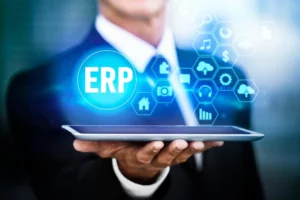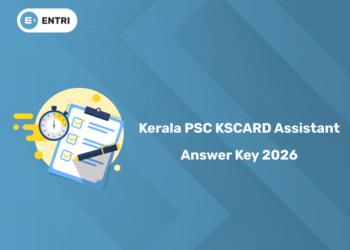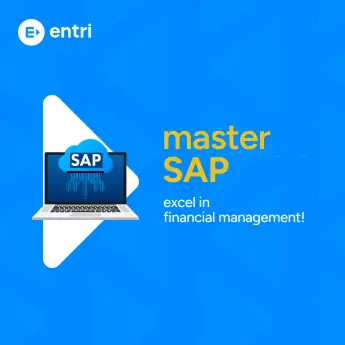Table of Contents
Key Takeaways:
- Oracle leads cloud-native ERP innovation, low IT overhead, and quarterly updates that keep businesses ready for what’s next.
- SAP is the go-to for deep industry solutions, process-heavy environments, and global organizations that need advanced compliance and configuration.
- Oracle offers powerful automation, faster financial closings, and a single data model that streamlines analytics and reporting.
- SAP remains strong in heavy industries, supply chain-heavy businesses, and highly regulated sectors that want end-to-end control.
- SAP skills are always in demand; Entri’s SAP FICO, SD, and MM courses are industry-approved stepping stones to global ERP careers.
Introduction
Choosing an ERP system is like picking the operating system for an entire organization—it affects how teams collaborate, how quickly you close your books, and how ready your business is for tomorrow’s challenges.
Maybe you’re an ambitious business scaling up, or a seasoned company tired of spending weeks reconciling financials across departments. The right ERP, whether it’s SAP or Oracle, can be a gamechanger. But pick wrong, and growth stalls. Complex onboarding, endless integrations, and runaway costs can turn the heart of your company into a bottleneck. Let’s cut the jargon and find out what solution makes sense for real businesses—and real people—today.
What is SAP ERP?
- Developed for enterprises managing core business processes such as finance, HR, procurement, inventory, and supply chain within one connected platform.
- Modular architecture—add industry-specific modules like SAP FICO (finance), SAP SD (sales & distribution), or SAP MM (materials management) as needed.
- Ideal for manufacturing, retail, logistics, healthcare, and companies operating in complex regulatory environments.
- Used by global enterprises, often with on-premise, hybrid, and cloud choices for maximum control.
Tip: SAP’s modularity means businesses can start with essential features and expand as needed. For mastery in finance, logistics, or sales, explore Entri’s SAP FICO, SAP SD, or SAP MM programs for hands-on training.
Read more at What is SAP?
Master SAP with Expert-Led Courses
Unlock your potential with our comprehensive SAP courses! Learn essential modules like SAP MM (Materials Management), SAP SD (Sales and Distribution), and SAP FICO (Financial Accounting and Controlling) from industry experts.
Know MoreWhat is Oracle ERP?
- A cloud-native ERP combining finance, procurement, supply chain, and project management into a unified suite.
- Features advanced analytics, AI-powered automation, and consistent quarterly updates delivered seamlessly via cloud infrastructure.
- Designed for large and mid-sized organizations—but scalable for faster-moving businesses.
- Prioritizes a unified data model, fast innovation cycles, and intuitive reporting across business lines.
Meaning: “Cloud-native” means Oracle ERP eliminates the hassle of local servers and upgrades—users always get the latest features, security, and compliance automatically.
Core Feature Comparison
| Feature Example | SAP S/4HANA ERP | Oracle Cloud ERP | Why This Matters |
|---|---|---|---|
| Core Tech | In-memory HANA DB, modular builds | SaaS-native, Oracle Cloud | Tech stack affects updates, agility, and TCO |
| AI/Automation | Built-in ML, predictive analytics | Deep AI/ML, auto-financials | Oracle shines in forecasting, scenario planning |
| Updates | Semi-annual, may require downtime | Quarterly, no disruption | Oracle users see faster, consistent improvements |
| Industry Specialization | Rich sector modules (FICO, MM, SD) | Broad, configurable modules | SAP is best for regulated/complex industries |
| Financials | Compliance, audit management | Automation, rapid close | Oracle closes books 2X as fast |
| Deployment | On-prem, hybrid, or cloud | SaaS by default | Oracle means less IT, quicker deployments |
| Customization | Heavy ABAP, flexible | Configurable, less code | Oracle cuts risk/cost of deep coding |
| User Experience | Complex, stable | Modern, intuitive | Oracle shortens onboarding/training times |
| Cost & ROI | Higher TCO, longer ROI cycle | Lower TCO, quicker ROI | Budget and value decisions play a key role |
Where SAP Excels
- Industry-specific solutions, especially for manufacturing, healthcare, regulated environments, and global compliance.
- Powerful modules for HR, payroll, supply chain, asset and inventory management.
- Centralized data for multi-country/multi-regional operations with rigorous controls over processes.
- Time-tested for organizations needing deeply integrated custom workflows.
SAP Common Pain Points
- Higher upfront implementation costs and longer deployment timelines.
- Steep learning curve; user adoption depends on extensive structured training.
- Customer support may be slower and less responsive than agile cloud competitors.
Read more at How to Be a SAP Certified Professional
Where Oracle Shines
- Cloud-first: Deploy and innovate without physical IT headaches or manual upgrades.
- Advanced automation—AI handles routine processes, predictive analysis, and anomaly detection with ease.
- Consistent user interface and data model—no integration headaches, better decision-making for management.
- Lower total cost of ownership (TCO) with quicker returns for businesses prioritizing speed and agility.
Oracle Common Drawbacks
- Some performance issues when handling massive custom datasets.
- Fewer out-of-the-box third-party integrations, may require development for niche tools.
- Interface, while intuitive, still requires training for some business functions.
Tips for Choosing the Right ERP
Selecting an ERP is a critical decision with long-term impact, so understanding your business priorities before you invest is crucial.
- Business Requirements: Map the exact needs of your organization, including industry-specific features (compliance, process depth, localization). For manufacturing, logistics, or regulated sectors, SAP’s industry modules often shine. For finance-led operations and those seeking rapid innovation, Oracle is often the smarter choice.
- Deployment Options: Consider your infrastructure preferences—SAP offers cloud, on-premises, and hybrid solutions, making it ideal for organizations transitioning gradually. Oracle’s cloud-native architecture prioritizes SaaS simplicity, reduces IT overhead, and accelerates adoption.
- Customization & Flexibility: SAP is recognized for deep customization potential through its modular design and development toolkit, enabling businesses to tailor operations to unique requirements. Oracle also allows personalization, primarily through configuration and cloud resources, reducing reliance on custom code.
- Integration Capabilities: Ensure your ERP will integrate smoothly with your existing third-party applications, legacy systems, and emerging tech (like AI, IoT, or blockchain). Oracle’s unified platform facilitates easy data sharing but SAP also provides robust integration options with real-time analytics.
- Support, Upgrades & Community: Oracle is known for quarterly upgrades, keeping your environment current. SAP upgrades can be more complex, but come with stability and predictability. Tap into each platform’s user communities and support frameworks—Oracle users benefit from large networks and low-maintenance SaaS, while SAP’s global user base excels in troubleshooting industry challenges.
- Cost & Scalability: Compare total cost of ownership, setup costs, ongoing subscription/licensing fees, and expected ROI timeline. Oracle’s lower TCO advantages suit growing companies, while SAP scales seamlessly for global enterprises, albeit at higher upfront investment.
Meaning: An ERP isn’t just about features—it’s about how well the system fits into your business culture, long-term goals, and digital strategy.
Master SAP with Expert-Led Courses
Unlock your potential with our comprehensive SAP courses! Learn essential modules like SAP MM (Materials Management), SAP SD (Sales and Distribution), and SAP FICO (Financial Accounting and Controlling) from industry experts.
Know MoreReal User Perspectives
Hearing from actual users clarifies the ERP selection beyond technical specs and marketing language.
- Ease of Use: Oracle users highlight its user-friendly interface, rapid onboarding, and short learning curve—particularly prized in finance, tech, and service industries. SAP’s robust interface and process depth receive praise for predictability, but new users often require more extensive formal training.
- Integration & Automation: Users of Oracle emphasize seamless integration across departments and praise its automated financial and analytics processes that cut weeks from close cycles. SAP users value its ability to connect diverse business processes but may find system customization and integration more time-consuming.
- Scalability and Flexibility: Oracle suits organizations aiming to grow quickly, with scalable cloud resources and less reliance on code-heavy customizations. SAP is often the choice for large, multinational firms needing robust sector-specific controls and decade-long stability.
- Cost & Implementation: In Reddit discussions and case studies, SAP users report higher costs, longer implementation timelines, and demanding change management. Oracle users note quicker deployment, reduced IT workloads, and lower ongoing expenses due to SaaS delivery.
- Community Insights: Oracle’s user network (over 200,000) and customer-led innovation accelerate troubleshooting and new feature adoption. SAP has a legion of seasoned process experts for resolving industry-specific issues during rollouts.
Tip: Before choosing, talk to ERP users in similar industries. Their honest feedback can be invaluable in revealing challenges and unexpected benefits.
Here’s a quick read: SAP Career Path – Everything You Need to Know
Meaning:
- SaaS: Software provided over the internet with ongoing updates—no manual installations.
- Modular ERP: Lets companies pick and choose the functionalities they need, expanding as they grow.
- In-memory DB: Data is processed faster by keeping it in system memory (like SAP HANA).
- TCO: Total cost of ownership, including setup, maintenance, support, and upgrades.
- Change Management: Organizational preparation to ensure new platforms are adopted smoothly, with minimal friction.
Practical Use Cases
SAP
- Multi-country manufacturers streamlining compliance and factory operations.
- Retailers managing large, complex global supply networks.
- Healthcare companies needing auditable, regulatory-compliant data workflows.
- Asset-intensive enterprises tracking inventory and working with smart IoT devices.
Oracle
- Finance teams closing books in days, not weeks, using ML-driven automation.
- Fast-growing tech and service businesses scaling from 50 to 5,000+ employees without IT bloat.
- Companies that want integrated cloud planning, analytics, and actionable insights from a single dashboard.
- Enterprises aiming to unify disparate HR, procurement, and finance systems for top-down control and transparency.
Learn SAP for Career Growth
Are you ready to build ERP skills employers want? Master SAP FICO for financial operations, SAP SD for sales/distribution, or SAP MM for global supply chain management. Entri’s industry-endorsed SAP courses equip professionals at all levels with practical skills, case-based learning, and certification support. Explore your growth path now: SAP FICO | SAP SD | SAP MM.
Key Features of Entri’s SAP Courses:
- Placement Assistance: Dedicated support for job search, including resume preparation, interview practice, and communication training to help learners secure roles at top companies.
- Globally Recognized Certification: Earn an SAP-authorized certificate upon completion to add weight to your career profile and stand out in the competitive market.
- Hands-On Practical Training: Access 3 months of student server time to practice SAP transactions and apply concepts to real-world business scenarios.
- Live & Recorded Sessions: Flexible learning options with live doubt-clearing and recorded classes to fit any schedule.
- Expert Mentorship: Guidance from experienced SAP-certified trainers and industry mentors for in-depth understanding and industry insights.
- Comprehensive Curriculum: Structured programs covering finance, material management, and sales/distribution, along with core skills needed for SAP careers.
- Career Guidance & Community: Personalized counseling, networking opportunities, access to exclusive job listings, and a supportive learning community.
Whether a recent graduate, finance or IT professional, or someone seeking to upskill, Entri’s SAP programs ensure a smooth path from learning to placement, making you truly career-ready for high-demand SAP roles.
Conclusion: Take Charge of Your Business Future
Getting the ERP choice right transforms an organization’s potential. Are you aiming for rapid digital transformation, or need airtight compliance in a regulated sector? There’s no wrong answer—just the right strategy for your needs. Upskill with Entri’s SAP FICO, SD, or MM courses and harness the power of tomorrow’s ERP landscape—whether your future is with SAP, Oracle, or both.
Now is the time to future-proof your skillset—and jumpstart your organization’s digital journey. Start your SAP career with Entri today!
|
Related Articles |
||
Master SAP with Expert-Led Courses
Unlock your potential with our comprehensive SAP courses! Learn essential modules like SAP MM (Materials Management), SAP SD (Sales and Distribution), and SAP FICO (Financial Accounting and Controlling) from industry experts.
Know MoreFrequently Asked Questions
What’s the main difference between SAP and Oracle ERP?
SAP specializes in modular, sector-focused solutions—best for complex, highly regulated industries. Oracle delivers unified cloud innovation and faster financial process automation.
Which is easier for beginners?
Oracle often feels more intuitive, while SAP offers predictability if you’ve used other SAP products. Both have a considerable learning curve.
Who should choose SAP over Oracle or vice versa?
Choose SAP for industry depth in manufacturing, healthcare, or logistics. Choose Oracle for rapid growth, cloud-first operations, and integrated analytics.
How expensive are Oracle and SAP?
SAP tends to have higher setup and long-term costs. Oracle’s SaaS model is generally more cost-efficient, especially as you scale.
Is SAP worth learning for career growth?
Absolutely. SAP FICO, SD, and MM expertise is always in demand by global enterprises. Courses like Entri’s provide a job-ready starting point.
Is Oracle or SAP better for small or mid-sized businesses?
Oracle is more SMB-friendly with its cloud model. SAP is often preferred by larger, legacy operations with specialized needs.
Do both offer HRIS and payroll?
Yes. SAP offers SuccessFactors, and Oracle has broad HR and payroll module support within its ERP.















